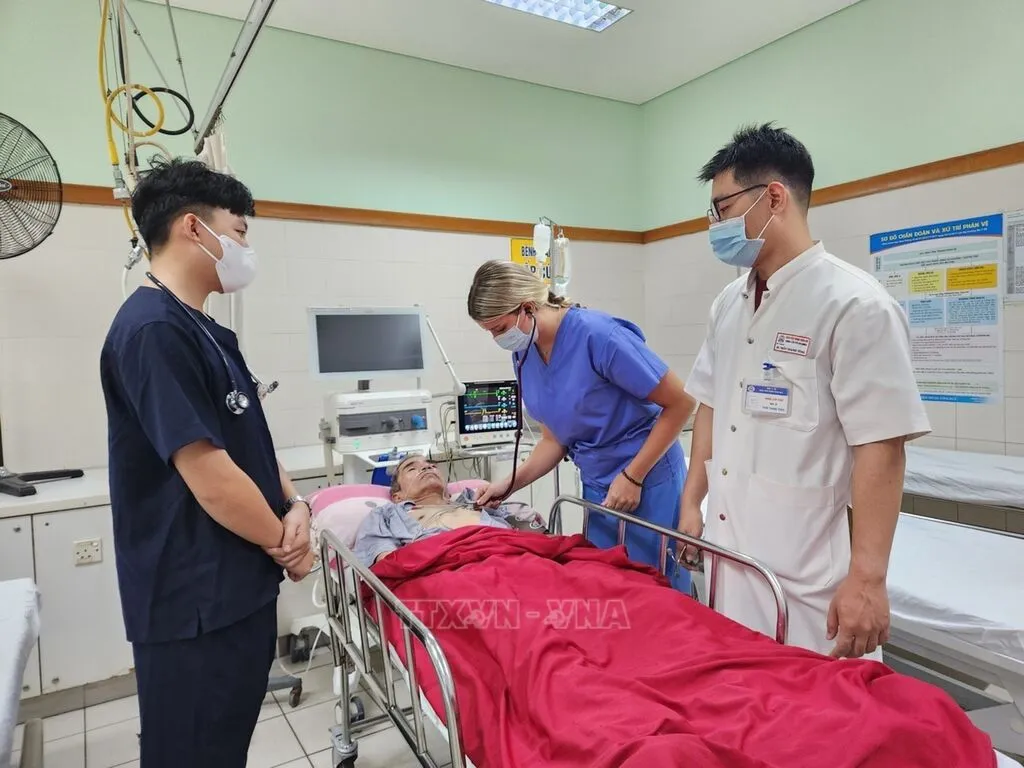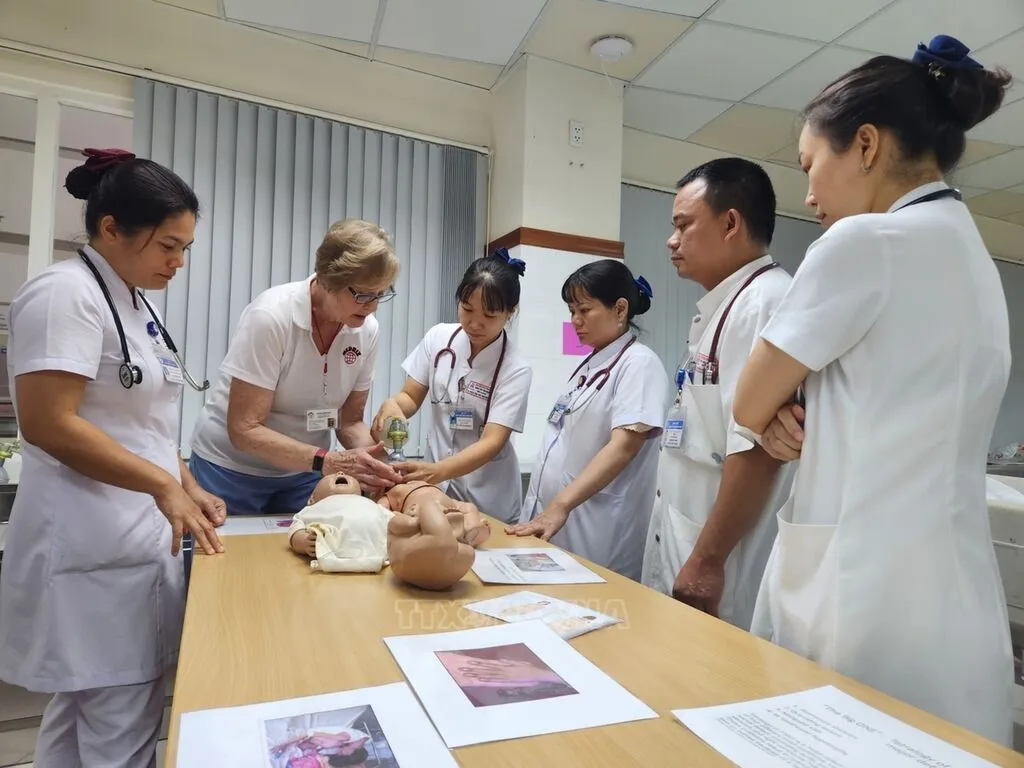 Society
Society

 |
| Students from the United Kingdom were interning in the Emergency Department at Huế Central Hospital. — VNA/VNS Photo |
HÀ NỘI — As globalisation deepens and health challenges grow ever more complex, international cooperation has become a cornerstone in Việt Nam’s drive to modernise its healthcare system. More than a policy direction, it is a strategic key to improving care quality, expanding global engagement, and elevating Việt Nam’s standing on the world stage.
Deputy Minister of Health Đỗ Xuân Tuyên was quoted by a local newspaper as saying that international cooperation remains one of the most important factors in improving service quality and building the health sector’s capacity to meet new challenges.
In an increasingly interconnected world, he added, deeper cooperation enables Việt Nam to keep pace with rapid medical advances while boosting its ability to respond to emerging epidemics, climate change and other global health threats.
Learning from global expertise
International partnerships offer valuable opportunities for Việt Nam to learn from advanced healthcare systems around the world. Through joint training, technology transfer and collaborative research, Vietnamese doctors and medical staff gain access to modern treatment methods and management models, helping raise professional standards and patient care quality.
Examples of this collaboration can be found nationwide. Chợ Rẫy Hospital’s partnership with Japan in organ transplantation has achieved significant breakthroughs. Bạch Mai Hospital’s cooperation with France and Germany has advanced specialist training, while the Pasteur Institute in HCM City has worked closely with partners from the United States and South Korea on vaccine research. These joint efforts highlight the tangible benefits of global medical integration.
Associate Professor Dr Tăng Chí Thượng, Director of the HCM City Department of Health, said partnerships with foreign hospitals bring not only professional advantages but also strategic benefits. “Such cooperation allows our hospitals to access cutting-edge technology, adopt modern management processes and apply new treatment techniques,” he said. “This ultimately improves healthcare quality and treatment outcomes.”
Strengthening research and resilience
International collaboration also plays a vital role in building Việt Nam’s research capacity and readiness to respond to health crises. A leading example is the partnership between the Hospital for Tropical Diseases in HCM City and the University of Oxford (UK) through the Oxford University Clinical Research Unit (OUCRU). As one of Asia’s foremost infectious disease research centres, OUCRU has produced hundreds of internationally recognised studies, contributing to global medical knowledge and enhancing Việt Nam’s preparedness for disease prevention and control.
 |
| A specialists from Medrix (USA) was sharing their expertise with nurses at Hue Central Hospital. — VNA/VNS Photo |
Beyond knowledge sharing, cooperation projects in vaccine production, biopharmaceuticals and cancer treatment technology transfer are helping Việt Nam move towards greater healthcare self-reliance. These initiatives are seen as crucial to reducing dependence on imports and meeting the growing domestic demand for high-quality medical services.
As the world faces mounting challenges such as emerging epidemics, climate change and ageing populations, Việt Nam has been taking an active role in multilateral health forums and initiatives. Participation in these platforms enables the country to exchange experience, receive technical support and coordinate joint action with international partners – key factors in strengthening national health security and resilience.
Việt Nam now maintains medical partnerships with around 80 countries and territories, along with ties to more than 20 international organisations, 200 foreign non-governmental organisations, global financial institutions, universities, and research institutes. The country’s health sector also contributes actively to multilateral frameworks and global forums led by the World Health Organization (WHO), UNICEF, the United Nations Population Fund (UNFPA) and UNAIDS.
Looking ahead, Deputy Minister Đỗ Xuân Tuyên said the Ministry of Health would continue to view international integration as one of the key pillars of healthcare development in terms of professional standards and technology. “It is also an effective channel for mobilising resources, especially given the limitations of public funding,” he noted.
International cooperation, he added, is not only about learning from others, but also about contributing to global health progress. By embracing partnerships and innovation, Việt Nam aims to build a modern, resilient and self-reliant healthcare system that serves its people better while affirming the country’s role as a proactive and responsible member of the global health community. — VNS




